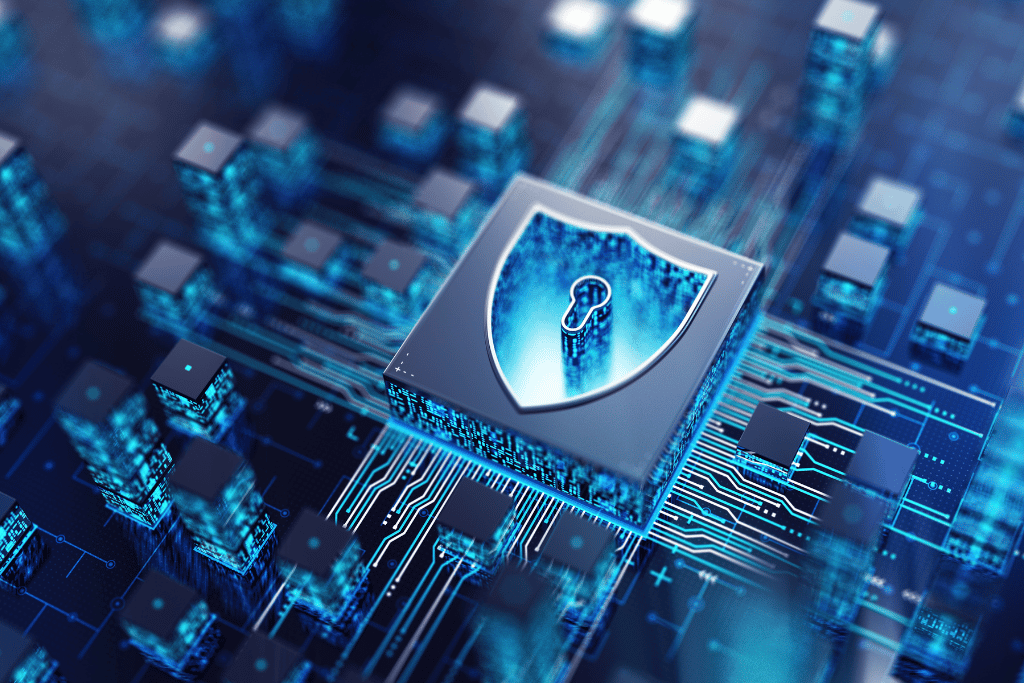What keeps small to mid-sized business (SMB) owners awake at night? It’s likely the fear of a cyber or ransomware attack. Effective IT protection begins with cybersecurity awareness. While cyber threats evolve daily, as an owner of an SMB, you may not have the time or expertise to confront these risks. Consider partnering with a Chicago IT support service to address this need so you can focus on your day-to-day business operations.
Here are some practical tips to promote cybersecurity awareness at your organization.
Incident Response Plan: What is it?
A cybersecurity breach can trigger significant system downtime, cause financial loss, expose personally identifiable information (PII), harm your organization’s reputation, or create non-compliance with legal regulations. An Incident Response Plan (IRP) is a documented approach to how your organization will detect, address, and recover from a cyber-attack. An effective IRP should explain how to resume normal operations with minimal impact after an incident as well as help you avoid threats in the future.
An IRP should include the following components:
- The Team – The IRP should identify the individuals who will serve on the incident response team, how they will communicate, and how they will pinpoint valuable assets and possible threats.
- The Threat – The plan should note how the team will recognize and validate the incident, assess the severity of the attack, and document the evidence.
- The Response – The IRP should outline how to prevent the damage from spreading, remove the cause of the attack such as malware, etc., apply fixes, and address vulnerabilities.
- The Recovery – The plan should address how to use data and system backups to restore the network to its previous status and enable the organization to resume operations.
- The Review - An IRP should look to future readiness by outlining how to review the incident and the effectiveness of the response. The Response Team should regularly test the IRP procedures and update the IRP to reflect their observations.
A robust IRP is critical to the protection of your network. A Chicago-based IT services consulting group can help you identify your response team, construct your IRP, and regularly perform simulations to ensure the plan is effective.
Cyber Insurance: Do you need it?
As mentioned earlier, cyber thieves are becoming more sophisticated, resulting in a rise in cybersecurity attacks. Today many insurance companies offer cyber liability insurance, policies to help SMBs ease the financial impact of cyber threats. While the offerings vary, here are some items they commonly cover.
- Regarding Losses to Your Organization – An incident can prove costly in many ways. Business interruption prompts lost income. A ransomware attack involves the payment of a ransom to recover captured data and restore system operations. You also incur expense to communicate with customers affected by the cyber-attack and to deliver an effective public relations response.
- Claims Against Your Organization – A cyber-attack can adversely affect your customers, vendors, and partners. Cyber insurance may assist with legal defense costs resulting from lawsuits. In addition, your policy may cover fines and financial penalties as a result of regulatory non-compliance or failure to protect PII.
While cyber insurance provides an economic safety net in the event of an incident, a policy will not replace effective cybersecurity protections. Also, your organization needs to evidence robust security practices to qualify for cyber insurance. Finally, review the policy prudently to determine which losses are not covered. Before you purchase a policy, consult professionals at an MSP who can help you develop cybersecurity awareness and security practices that mitigate much of the financial risk and help you assess the value of cyber insurance for your organization.
Employee Training: Can you provide it?
Sadly, human error remains the greatest cause of security breaches. But by educating your team, you can reduce the risk. Your employees should know how to identify a threat and respond to it. Educate your staff regarding network usage policies and ensure they comply. In general, encourage behavior that promotes security and train your employees in best practices. Here are some things your employee training should include.
- Recognize Phishing Schemes – Ensure your team can identify suspicious emails; train them to avoid fraudulent links or attachments from unfamiliar sources. Show them how to report these attempts.
- Secure Your Passwords – Educate your employees on the importance of creating strong passwords and the value of using a password manager. Require multi-factor authentication (MFA), the requirement to provide multiple items of identification to gain access to the network and applications.
- Use the Internet and Email Wisely – Train your staff to be wary of strange websites and to recognize social engineering schemes introduced through malicious emails.
- Handle Sensitive Data Responsibly – Understand the importance of encrypting sensitive data and obfuscating data to ensuring data is viewable only by individuals with the proper authorization. Educate your employees on the classification of PII data as well as privacy rules governed by organizations such as the General Data Protection Regulation (GDPR), rules applicable across the European Union (EU) and the European Economic Area (EEA).
- Use Devices and Network Reliably – Work with your IT staff to ensure all software applications are updated promptly, avoiding vulnerabilities existing in outdated versions. Adopt robust VPN applications and train your employees to safely access your network when using public Wi-Fi.
- Report Security Incidents – Attacks will happen; show your team know how to report a possible security incident as soon as possible. Every employee must know who to contact when they recognize such an attempt.
Think about partnering with a Chicago MSP who can help you administer phishing tests, provide role-specific training, and track and monitor the effectiveness of the training. Consider employing the services of an MSP whose professionals have the experience and expertise to architect a secure IT infrastructure, and whose consultants can help your organization become cybersecurity aware. Located in Chicago, JMA Consulting can provide education as well as onsite cybersecurity support to SMBs in the greater Chicago area.

